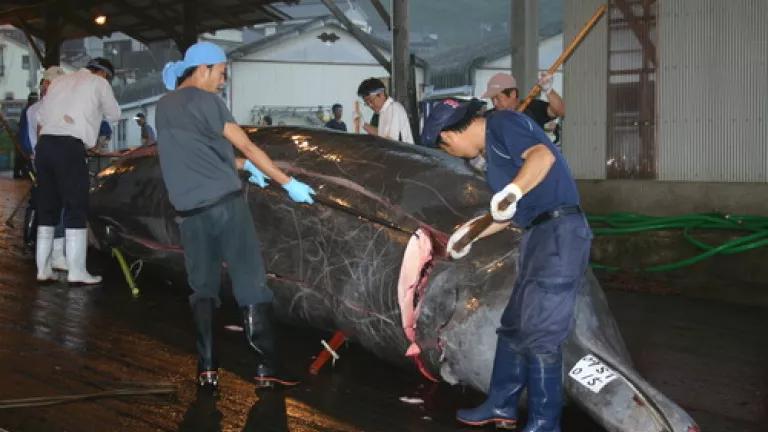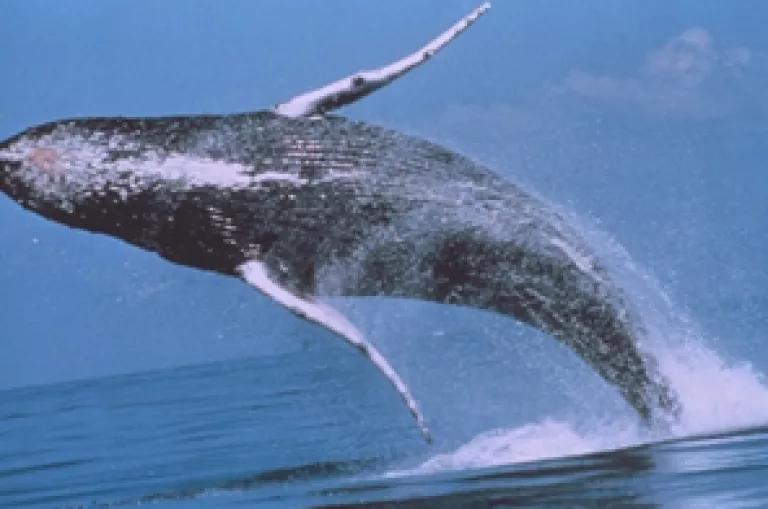
The phrase “whale wars” usually evokes images of doom and gloom for the whales: Japan hunting whales in the Southern Ocean – in a designated whale sanctuary, no less – with Sea Shepherd activists waving their pseudo-pirate flag in hot pursuit. Iceland gearing up for another season of killing endangered fin whales, despite the diplomatic sanctions imposed by the United States last September. Or Norway quietly–but lethally–hunting minke whales.
But there is hope.
Last week, Norway's Directorate of Fisheries revealed that the number of Norwegian whaling vessels has shrunk from 33 in 2001 to just 19 last year. Norway still hunts whales under an objection to the moratorium on commercial whaling, but it’s not hunting all the whales it self-allocates. In 2011, for example, Norway authorized hunters to kill 1,286 minke whales, but hunters actually killed less than half of that quota (468).
Japan is also having trouble filling its self-allocated quota of whales it kills under the guise of “scientific research.” Last year, Japan caught less than a quarter of its quota in the Southern Ocean due to interference from the Sea Sheperd. This year, Japan beefed up security around its whaling fleet – using $29 million billion from tsunami relief funds – despite the fact that support for whaling at home is at an all time low.

Last week, the Japan Times published a compelling editorial – Wars Over Whaling – which concluded that the “whaling subsidy provides little benefit to coastal communities and stymies efforts to reconstruct genuinely sustainable industries. That money could have been used for many other purposes.”
The editorial further addressed the issue of “tradition” – an argument often used by pro-whaling advocates in Japan:
The traditional custom of eating whale meat has considerably declined. Many reports show that whale meat from whales killed last year is piling up in refrigerated warehouses.
Whale meat was surely an important part of Japan's heritage, and a major source of protein in the lean times after World War II. However, its continued consumption, for either culinary, dietary or cultural reasons, hardly seems compelling at this point.
Continuing the whale hunts means Japan will continue to pay dearly in international diplomatic costs for its right to maintain a tradition that extends far beyond the borders of the country's culture yet is no longer central to daily life here at home.
Although the war on whaling is far from over, this shift in consciousness in Norway and Japan represents a small—but hopefully momentum-building—win for the whales.
Photo credit: EIA and NOAA, respectively.

